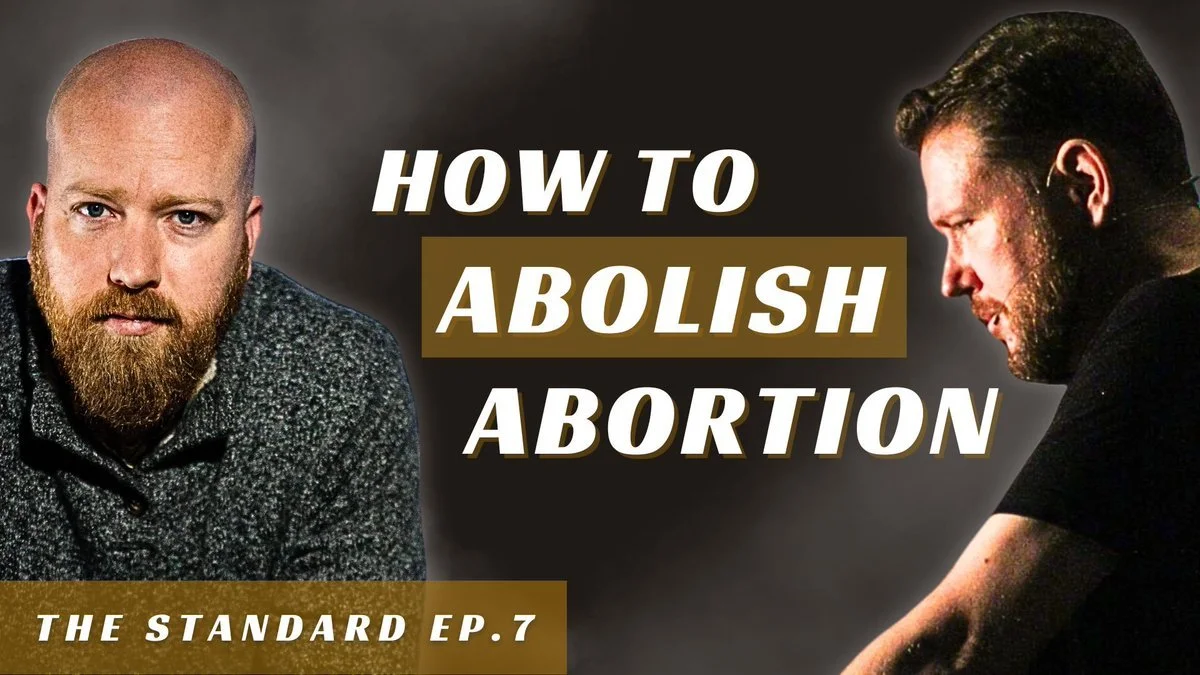8 Evangelicals On Trump’s Verdict, 3 Popes, and Evil Eyes
Today’s edition covers evangelical reactions to Trump’s guilty verdict, a report about the term “Evangelical,” a new debate on how Christians should fight abortion, that time in history when there were three popes, and much more.
“[The LORD] stores up sound wisdom for the upright; he is a shield to those who walk in integrity, guarding the paths of justice and watching over the way of his saints.” (Proverbs 2:7-8)
Of Christian Concern
8 EVANGELICAL RESPONSES TO TRUMP’S GUILTY VERDICT
Many high-profile Evangelicals have reacted to the guilty verdict in former president and current presidential candidate Donald J. Trump’s New York “hush-money trial,” which marks the first time a former U.S. president has been convicted of a crime.
The case involves charges that require an underlying crime to have been committed, thoughthe underlying crime is not perfectly clear and (per the judge) did not need to be firmly agreed upon by the jurors. This fact has led some commentators to describe the case as “a turducken” or “Russian nesting dolls” or “an onion of charges,” “at the center [of which] there is nothing.”
Quickly: if you’re not getting Project 18:15 in your inbox each week, here’s your chance.
Evangelicals responded in various ways. For a taste, here are eight reactions from well-known figures.
1. Rev. Franklin Graham, CEO of the Billy Graham Evangelistic Association and Samaritan’s Purse:
2. Jack Graham, senior pastor of Prestonwood Church in Plano, Texas:
3. Jentezen Franklin, senior pastor of Free Chapel in Gainesville, Georgia:
4. Dwight McKissic, senior pastor of Cornerstone Baptist Church in Arlington, Texas:
5. Russell Moore, former head of the Southern Baptist Convention’s Ethics and Religious Liberty Commission and current editor-in-chief of Christianity Today, in a response for which he was roundly panned by other popular Christian personalities in the comments:
6. Brian Gunter, senior pastor of First Baptist Livingston, Louisiana:
7. Douglas Wilson, senior minister of Christ Church in Moscow, Idaho, in characteristically evocative prose (click the image to see the whole thread):
8. R. Albert Mohler Jr., president of The Southern Baptist Theological Seminary (click the image to read the full op-ed):
As the dust settles on this verdict and its implications become more apparent, perspectives among Evangelicals will undoubtedly continue to develop and solidify. Presumably, some will throw up their hands in dismay, and others will be goaded to political action.
Also Noteworthy
Infinity Concepts’s new report on the term “Evangelical” (Infinity Concepts)
→ Perceptions and definitions of the term “Evangelical” vary widely, according to a new Infinity Concepts study. Among self-identified evangelicals, “93% feel positively toward [the term],” with “73% feel[ing] very positively.” Among Protestants who do not use the term, “34% are positive toward it, while 47% are neutral, and 18% have a negative perception of the term.” How Protestants and others define the term is also variable. Get the report here.
→ Abortion abolitionist David Lowe unseats pro-life incumbent Stephanie Klick in a Texas House primary runoff on Tuesday, in a win that constitutional attorney Bradley Pierce dubbed “a new day in Texas.”
→ Oklahoma state senator Dusty Deevers explains how “hormonal contraceptives” are, in fact, abortifacient (in other words, hormonal birth control causes abortions) during a legislative session on Wednesday. His comments oppose a bill requiring certain health benefit plans to reimburse such drugs. The bill passed.
→ American Idol contestant Roman Collins and celebrated gospel singer CeCe Winans sang a stirring rendition of “Goodness of God” at the American Idol Grand Finale last week.
→ Dallas Jenkins, director of the life-of-Christ television series The Chosen, reveals that the show has broken ties with its original distribution partner, Angel Studios, after third-party arbitration found that Angel Studios breached their contract “in multiple and material ways.”
→ Russ Barksdale, a Southern Baptist Convention’s Executive Committee member, published an article on Tuesday explaining why he opposes the Law Amendment, which is a move to sure up the denomination’s commitment “to uphold only qualified men as pastors.” Boyce College Professor of Biblical Studies Denny Burk classifies Barksdale’s case as “the recycling of old arguments that have already been refuted,” but “for the sake of those just tuning in,” re-offers a refutation.
Content Catch-Up
Recent, notable content of Christian interest.*
Cover photo for the debate between Toby Sumpter and T. Russell Hunter (Joshua Haymes / X)
→ Abolitionism vs. Incrementalism: Joining the recent debates about how Christians should fight abortion, Pastor Toby Sumpter and activist T. Russell Hunter clash over incrementalism vs. abolitionism in this conversation hosted by Joshua Haymes on The_Standard. (Video)
→ Natural Selection Is Not Evolution: In a YouTube short, Dr. Tim Chaffey of Answers In Genesis responds to a recent Scientific American article claiming “Humans Are Driving a New Kind of Evolution in Animals.” (Video)
→ Did the Catholic Church Determine the Books of the Bible?: Tim Barnett of Red Pen Logic gives a succinct Protestant refutation to a Catholic priest’s claim that the books of the Bible were determined by the Catholic Church. (Video)
*Not necessarily an endorsement
Church History Tidbit
That Time There Were Three Popes
A 14th-century illustration representing the Western Schism. (Public Domain)
Did you know there were multiple popes at one time in history? That period of dueling pontiffs, which occurred over a century before the Reformation, is called the Western Schism (1378-1417). For the nearly 70 preceding years, due to “political conditions,” the papacy had been situated in Avignon rather than Rome. When it returned to Rome in 1377, there were calls for the election of a pope who was “a Roman or at least an Italian.”
The archbishop of Bari was elected and took the name Urban VI. However, he “proved to be so hostile to the cardinals” that a group of them withdrew and claimed that his election was “invalid because it was made under fear.” These renegade cardinals then “elected one of themselves,” who took the name Clement VII and headquartered at Avignon.
This conflict destabilized the Western church, fracturing it “along national lines.” Solutions were proposed: both popes could resign, or there could be “a decision by an independent tribunal or a general council.” Neither pope agreed to those ideas, so cardinals from either side got together in 1409 and elected a third pope, Alexander V, who was succeeded the following year by John XXIII.
Then there were three. — Can you imagine the memes that would have ensued if the Internet had existed back then?
Emperor Sigismund pressured John to call a council to resolve the issue, and he did. In 1414, the Council of Constance deposed John, accepted the Roman pope’s resignation, and dismissed the Avignon pope’s claims. In 1417, the schism ended with the election of Martin V. There was again, at last, only one pope—which, Protestants would come to believe, was one too many.
The Bible, Briefly
Is Your Eye Evil?
Photo: Engin Akyurt
In Matthew 20, Jesus tells a parable about a vineyard owner who hires laborers from the marketplace to work in his vineyard. In the morning, some laborers agree to work for the day in exchange for a denarius. The vineyard owner returns to the marketplace every three hours and hires additional workers. When he pays them all at the end of the day, he pays everyone a denarius regardless of how long or short they worked. The ones who worked the entire day complained, supposing they should get more if those who worked a shorter period were paid a denarius.
The vineyard owner tells one of them, “Friend, I am doing you no wrong. Did you not agree with me for a denarius? Take what belongs to you and go. I choose to give to this last worker as I give to you. Am I not allowed to do what I choose with what belongs to me? Or do you begrudge my generosity?” (Matthew 20:13-15)
Bible readers will be interested to know that this last sentence (“Or do you begrudge my generosity?”) is not a direct translation. Sometimes, modern Bible translators choose to “translate” the meaning of a phrase rather than the original Greek words because a direct translation wouldn’t make sense to us in modern English (at least, not without explanation).
In this case, a direct translation would be, “Or is your eye evil because I am good?” Some commentators explain:
“The ‘evil eye’ was a jealous, envious eye. The landowner asked if they were jealous because the landowner was generous to other people. The ‘evil eye’ was an idiom used to refer to jealousy (cf. Deuteronomy 15:9; 1 Samuel 18:9).” (D.A. Carson)*
“An evil eye was a phrase in use, among the ancient Jews, to denote an envious, covetous man or disposition; a man who repined at his neighbour’s prosperity, loved his own money, and would do nothing in the way of charity for God’s sake.” (Adam Clarke)**
Brian Sauvé of the podcast Haunted Cosmos also weighs in:
“There's a Hebraism that if you have a good eye, it means that you look on people with mercy and generosity and love, that your eye is good. Everywhere you look, you find an object of your love and affection and mercy and generosity. If your eye is bad, it means you look on everything with envy and with greed and with, ‘I gotta get mine. And I don't love anybody. I just love myself.’ So the bad eye, biblically, is the person who, their soul is full of darkness [cf. Matthew 6:23]. And so everywhere they look, they just see another reason to be bitter.”
So, how’s your eye?
Get Project 18:15 in your inbox each week—two days before everyone else.
What did you think of today’s briefing?
Know someone who would enjoy this?
Please SHARE this newsletter
*Carson, D.A. “Matthew” The Expositor’s Bible Commentary, Volume 8 (Grand Rapids. Michigan: Zondervan, 1984), as cited by Enduring Word.
**Clarke, Adam The New Testament of Our Lord and Saviour Jesus Christ, Volume II (New York: Eaton & Mains, 1832), as cited by Enduring Word.
Unless otherwise indicated, all Scripture quotations are from The ESV® Bible (The Holy Bible, English Standard Version®), copyright © 2001 by Crossway, a publishing ministry of Good News Publishers. Used by permission. All rights reserved.















